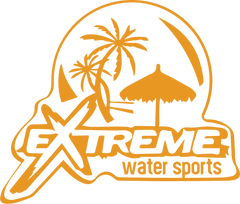Mixed Gas Diving Abroad: Key Considerations for Trimix and Deco Divers
Mixed Gas Diving Abroad: Key Considerations for Trimix and Deco Divers
Planning a mixed gas diving adventure abroad—whether it’s a Trimix-filled descent into deep wrecks, Extended Range dives with Enriched Air Nitrox, or precise decompression profiles—requires far more than packing your dive gear. As a PADI and TDI technical training center based in Fujairah, UAE, Extreme Water Sports can help you navigate the maze of training, logistics, gas planning, and international regulations to ensure your next dive trip is both safe and unforgettable.
Let’s dive into the essential considerations for Trimix and Deco divers heading overseas.
1. Verify Your Certifications and Experience
Before booking a technical dive trip abroad:
-
Hold valid credentials — such as TDI Trimix Diver or PADI Tec 65/Trimix — and ensure they're internationally recognized.
-
Log sufficient dives — and use gas mixes similar to what you'll use on the trip.
-
Refresh your skills beforehand: consider local practice sessions with Extreme Water Sports to fine-tune your procedures.
✅ Remember: operators often require recent dives or documented experience with decompression and gas switches.
2. Choose a Dive Operator That Supports Mixed Gases
Not all dive centers cater to technical divers. Look for operators that offer:
-
Custom gas mixing for Trimix, Nitrox, and Heliox
-
Proper equipment for CCR or open-circuit technical diving
-
Experienced guides familiar with decompression planning, e.g., deep wrecks or drift sites
-
Strict safety protocols and emergency plans
Institutions aligned with PADI TecRec and TDI standards are ideal partners for overseas Trimix dives.
3. Gas Logistics: Plan Ahead
Technical gas needs make trip planning more complex:
-
Pre-order helium or mixes at your destination—local availability can be limited.
-
Pack reliable regulators/direct fittings for mixed gases.
-
Confirm availability of bailout bottles, stage tanks, gas blenders, and appropriate labeling/mixing facilities at your destination.
✅ Tip: Ask your dive operator to confirm cool filling procedures well in advance, especially in international or remote locations.
4. Trimix Planning and On-Site Adjustments
While you'd plan theoretical mixes and depths beforehand:
-
Recalculate mixes on-site using local conditions (e.g., salt content, altitude) before each dive.
-
Use a Shearwater or equivalent dive computer with Trimix/Decompression mix support to validate your plans in real-time.
-
Always carry documented back-up diluent/gas plans and stickers indicating blend composition.
5. Pack Essentials and Redundancies
Technical travel gear needs weighing decisions:
-
Bring your own regulators and gas fittings if foreign compressors vary in configuration.
-
Pack sensor spares, high-pressure hoses, and inflator hoses compatible with CCR systems.
-
Include a Save-a-Dive kit with O-rings, hose clamps, sealants, and battery spares.
6. Understand Customs and Airline Policies
Masks, computers, and regulators go in your carry-on; cylinders and batteries need special handling:
-
Airlines often require tanks to be drained and with valves opened.
-
Li-ion batteries (in CCR controllers and cameras) should be in carry-on bags, with tools to protect against short circuits.
-
Bring paperwork like certification cards and medical declarations, and ensure any regulated fill orders are pre-approved by customs or airport security on arrival.
7. Health, Insurance & Emergency Planning
Planning for decompression-related emergencies is critical:
-
Carry travel insurance that covers technical diving, evacuations, and hyperbaric treatment.
-
Know the nearest hyperbaric chamber’s location and operations before departure.
-
Inform colleagues or travel contacts of your dive itinerary, including depths and decompression schedules.
8. Post-Dive Procedures and Equipment Maintenance
After each dive:
-
Off-gas safely between flights—wait a minimum of 18–24 hours following heavy decompression outings.
-
Rinse and dry gear thoroughly to maintain regulators, O₂ sensors, and D-rings.
-
Record dive logs and surface conditions to inform future dive trips.
Call-to-Action
Are you ready to take your Trimix or CCR diving global? At Extreme Water Sports, located in Fujairah, UAE, we offer:
-
Advanced Trimix and Deco courses (PADI and TDI certified)
-
CCR training on systems like the Dive Rite O2ptima CM
-
Gear advice and Dive Computer consultations
-
Travel prep and dive logistics planning
📩 Contact us now to schedule your pre-travel training or dive planning session, and make your next mixed gas expedition abroad one to remember!

